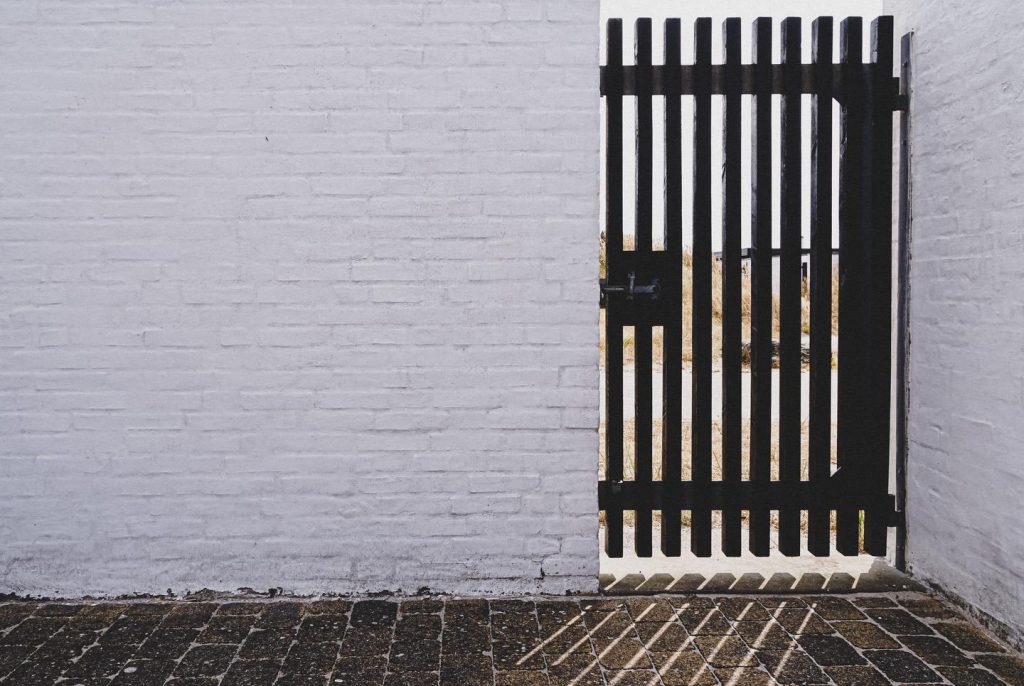
Jesus had begun His discussion of the Law by warning His followers not to look to the Pharisees and teachers of the Law as examples of how to enter heaven, “For I tell you that unless your righteousness surpasses that of the Pharisees and the teachers of the law, you will certainly not enter the kingdom of heaven.” He then taught the better application of the Law of God as being instructive of God’s character. Those listening to Him found the Law is not so much a rule-book to be legalistically applied as a revelation of God’s character to be embraced by those who would identify themselves as God’s people.
Having finished teaching His followers, Jesus moves on to a series of admonishments to ensure that they are not led astray anymore. He begins, “Enter through the narrow gate. For wide is the gate and broad is the road that leads to destruction, and many enter through it. But small is the gate and narrow the road that leads to life, and only a few find it.”
When Jesus talks here about entering, He is talking about entering the Kingdom of Heaven. Everyone wants that, but the problem is that there are two paths that people thread on in attempts to get there. There is a broad road that leads to elsewhere and a narrow road that leads to life. The broad road is the way many are on. For most are choosing to be their own standard of righteousness. They are following the ways of the Pharisees and teachers of the law in trying to earn their way into heaven through ritual and legalistic application of God’s law. Confident in the self-righteousness they so accumulate, they see the way to God’s presence as self-attainable. In their minds it depends entirely on what they’ve done and what they’re doing. Yet as all flesh does, they eventually come to a point of no return. Then they find that beyond is not life, but utter waste and destruction, for those who go the wide way of the world find nothing more past the point of no return than the limitation, fault, sin and brokenness of themselves.
The narrow road that few are on also leads past a point of no return. The original language wording Jesus uses indicates that the narrow road is a path of some difficulty. For this path is a way of righteousness that far exceeds that of the most diligent practitioner of legalistic ritual. It is a righteousness that we cannot earn, no matter the personal sacrifice we make or the time we spend. Few grasp it. But having it, going beyond the point of no return we find exuberant vitality, abundance, joy and a fullness of life we can hardly envision.
Jesus is encouraging us to consider the path we’re on BEFORE we get to our point of no return. For all can pause and consider the road they are while they walk it, but we do not get to choose our destination once we pass the point of no return. To some that point comes suddenly. To some it comes slowly. All must go beyond it. What horror to get just past that point and realize that you walked on the wrong path, and arrived at the wrong gate! Yet we can know which is the right gate. For Jesus later said, “I am the gate; whoever enters through me will be saved.”
We can be saved from destruction. We can be saved to eternal life. This we can be sure of. He said, “I am the way and the truth and the life. No one comes to the Father except through me.”
This is truth. Those who go the narrow way of Jesus find their destination is not so much a place as a person. Just as Jesus is the way, the destination is God our Father. Those who go through the gate of Jesus find God’s Kingdom of heaven, and there they find eternal, abundant, life!
You cannot enter the strait and narrow gate in a crowd, borne in by others, but you must come in separately and distinctly yourself.
Charles Spurgeon
APPLICATION: Intentionality
We cannot push others through the narrow gate. But we can call them off the wide path by pointing to the Way, the Truth and the Life.

